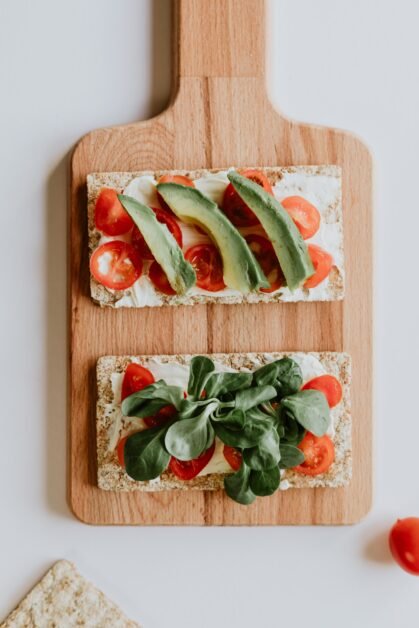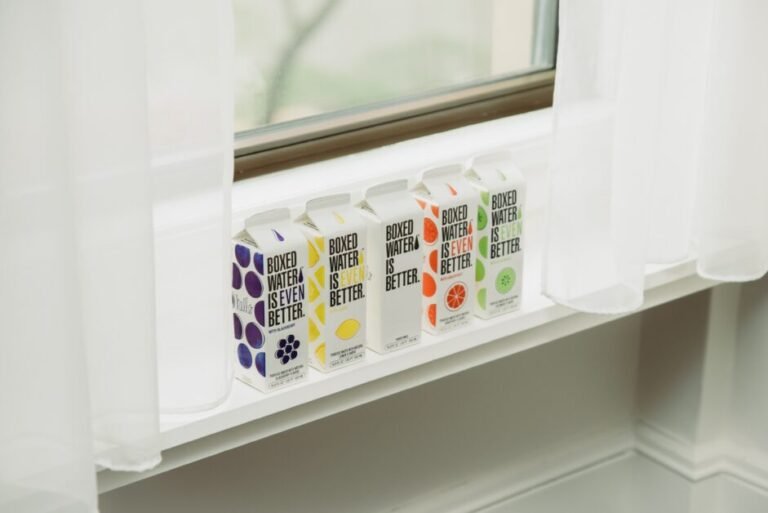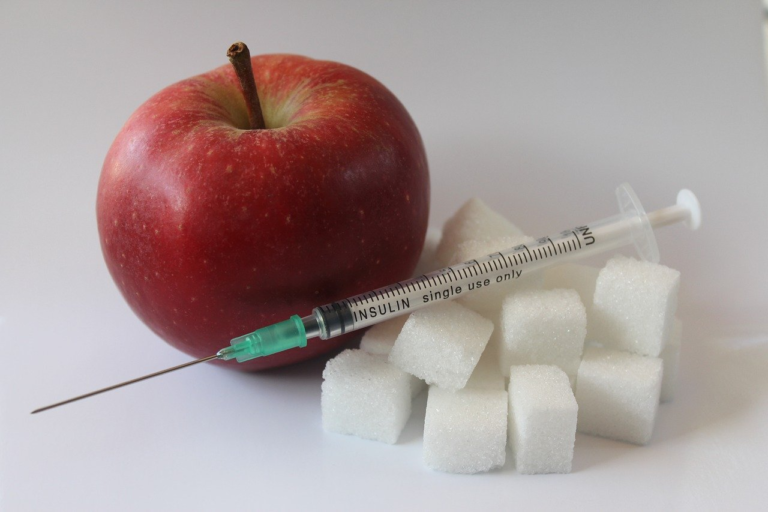Managing Your Diabetes During the Holidays: Tips for Staying on Track
#ez-toc-container {
background: #f9f9f9;
border: 1px solid #aaa;
border-radius: 4px;
-webkit-box-shadow: 0 1px 1px rgba(0, 0, 0, .05);
box-shadow: 0 1px 1px rgba(0, 0, 0, .05);
display: table;
margin-bottom: 1em;
padding: 10px 20px 10px 10px;
position: relative;
width: auto;
}
.ez-toc-container-direction {
direction: ltr;
}
.ez-toc-list-level-1 a{
font-weight:bold;
}
Table of Contents
1. Understanding the Holiday Challenges for Diabetes Management
The holiday season often presents unique challenges for individuals managing diabetes. It’s a time of joy, festivity, and often indulgence, creating a landscape filled with temptations and disruptions that can complicate diabetes management. Understanding these holiday challenges, planning accordingly, and maintaining a proper mindset are essential steps for individuals with diabetes to ensure their health and wellbeing during this time.
Overview of Common Holiday Temptations and Disruptions
During the holidays, various factors can derail even the most diligent diabetes management routines. Some of the most common challenges include:
- Tempting Foods and Drinks: Holiday gatherings often feature a plethora of rich, sugary, and carbohydrate-heavy foods. Whether it’s a slice of pie, a festive cocktail, or a serving of creamy mashed potatoes, the temptations to indulge are ubiquitous.
- Irregular Meal Timing: Holiday events may lead to irregular meal schedules. Skipping meals or eating at unusual times can result in unpredictable blood sugar levels.
- Increased Stress: The hustle and bustle of the holiday season, along with potential travel, shopping, and social obligations, can elevate stress levels, which in turn can affect blood sugar management.
- Lack of Physical Activity: With the focus on festivities, regular exercise routines may be disrupted, impacting the ability to manage diabetes effectively.
Significance of Planning and Mindset in Diabetes Management During Holidays
To tackle these challenges head-on, planning and maintaining a proactive mindset are pivotal. Here are essential strategies to navigate the holidays effectively:
- Plan Ahead: Having a plan for meals and activities can make a significant difference. Consider the menu options in advance and aim to make balanced choices.
- Portion Control: Enjoy seasonal foods, but in moderation. Opt for smaller portions of high-carbohydrate and high-sugar items.
- Maintain Regular Testing: Monitor blood sugar levels more frequently to understand how holiday foods and activities affect your management plan.
- Stay Active: Incorporate physical activities, such as walks or a quick workout, into your holiday schedule to help manage blood glucose levels.
- Mindful Eating: Take time to savor each bite, which can help with portion control and provide more satisfaction with less food.
- Set Realistic Goals: Aim for maintaining rather than losing weight, and focus on balance rather than perfection.
Highlighting the Importance of Medical Advice Specific to Individuals
Every individual with diabetes has a unique health profile, and personalized medical advice is critical during the holidays. It’s advisable to consult with healthcare professionals for guidance tailored to your specific needs. Here are some reasons why medical advice is crucial:
- Personalized Diet Recommendations: A dietitian or healthcare provider can offer targeted advice about which holiday foods to enjoy and which to limit.
- Medication and Insulin Adjustments: Healthcare providers might suggest adjusting medication or insulin schedules to cope with changes in diet and activity patterns.
- Monitoring and Emergency Plans: Discussing the best practices for monitoring during high-stress times and establishing a plan if blood sugar levels become problematic is vital.
By embracing these strategies and continuously seeking personalized medical advice, individuals with diabetes can navigate the holiday season more comfortably and healthily, ensuring that festive enjoyment and well-being go hand in hand.

2. Planning Ahead to Mitigate Risks
Festive gatherings bring joy and celebration, but they can also present challenges for those managing their health. By planning ahead, individuals can mitigate risks associated with holiday feasts, ensuring a balance between enjoyment and wellness. Here are some essential tips for meal planning and portion control, scheduling regular check-ins with healthcare providers, and understanding the effects of alcohol on blood sugar levels.
Meal Planning and Portion Control During Festive Gatherings
Festive events often offer a plethora of delicious dishes, making it easy to overindulge. Proper meal planning and portion control are crucial for maintaining health during these occasions. Here’s how to effectively manage your holiday meals:
- Plan Your Menu: Consider the dishes that will be served and determine which foods align with your dietary needs. Include a balance of proteins, carbohydrates, and healthy fats. Prioritize dishes that are baked, grilled, or steamed over those that are fried or rich in cream-based sauces.
- Mindful Portions: Familiarize yourself with appropriate portion sizes. During the gathering, use a smaller plate to prevent overeating. Fill your plate with vegetables first, which are low in calories and high in nutrients, before adding other items.
- Healthy Alternatives: Substitute traditional ingredients with healthier alternatives. For example, use cauliflower mash instead of mashed potatoes, or opt for whole-grain options instead of refined grains.
- Stay Hydrated: Drinking water before and during meals can help control hunger. Make a habit of reaching for a glass of water between bites to slow the pace of your eating.
- Practice Mindful Eating: Enjoy each bite by eating slowly and savoring the flavors. This practice helps with digestion and gives your body time to signal when it’s full.
Scheduling Regular Check-Ins with Healthcare Providers
Regular check-ins with healthcare providers are essential for anyone planning to enjoy festive gatherings, particularly those managing chronic conditions such as diabetes or cardiovascular disease. These appointments can help individuals stay on track with their health goals and make informed decisions during the celebration.
- Pre-Holiday Consultations: Schedule a meeting with your doctor or a registered dietitian before the festive season kicks in. This meeting can help review your current health status, adjust medications as needed, and tailor dietary recommendations.
- Set Health Goals: Work with your healthcare provider to set realistic goals for the holiday season that align with your long-term health objectives.
- Monitor Progress: Regularly monitor your health statistics, such as blood glucose levels or blood pressure, and communicate findings with your healthcare provider. This ongoing dialogue can offer timely advice and adjustments to keep your health on track.
- Post-Holiday Check-Ins: After the festivities, follow up with your healthcare provider to discuss any challenges faced and re-evaluate your health plan moving forward.
Identifying Alcohol and Its Effects on Blood Sugar Levels
Alcohol consumption is common during festive gatherings, but it’s important to understand its potential effects, especially for those concerned about blood sugar levels. Here’s what you need to know:
- Know Your Alcohol: Different types of alcohol can have varying impacts on blood sugar. For instance, pure spirits like vodka or gin might not affect blood sugar as significantly as sugary cocktails or beer.
- Moderation is Key: Consume alcohol in moderation. For most adults, moderation is defined as up to one drink per day for women and up to two drinks per day for men.
- Monitor Blood Sugar Levels: Keep track of your blood sugar levels before, during, and after consuming alcohol to understand its impact on your body.
- The Hidden Sugars: Be aware of mixers that are high in sugar or carbs. Opt for soda water or diet cola instead of regular soft drinks.
- Eat Before You Drink: Alcohol can cause a drop in blood sugar if consumed on an empty stomach. Ensure you have a balanced meal prior to drinking.
- Recognize Symptoms: Be aware of how alcohol affects symptoms of hypoglycemia, such as dizziness, confusion, and weakness, as they can be similar to intoxication.
By incorporating these strategies into your festive celebration plans, you can relish holiday gatherings with peace of mind, ensuring your health remains a top priority. Always consult with healthcare professionals to tailor advice to your specific needs, and make informed choices that align with your overall well-being.

3. Navigating Holiday Meals and Social Gatherings
The holiday season is a time of joy, celebration, and often indulgent eating. For those who are conscious about their health, navigating holiday meals and social gatherings can be challenging. But with some smart strategies, you can enjoy the festivities while making healthier choices. This guide provides an in-depth look at selecting healthier alternatives, managing your intake, and utilizing technology to keep track of your dietary habits.
Navigating Holiday Meals and Social Gatherings
When the holiday season kicks in, so does the array of traditional dishes laden with sugar and carbs. However, with some planning, you can still partake in these gatherings without compromising your health. Here’s how:
-
Choosing Healthier Options and Alternatives for Traditional Holiday Foods
- Understand Nutritional Content: Before attending a gathering, familiarize yourself with the typical nutritional content of holiday dishes. This will help you make informed choices.
- Replacement Ingredients: Use ingredients like whole grain flour instead of white flour, or substitute sugar with natural sweeteners like honey or stevia.
- Focus on Protein and Veggies: Load your plate with turkey, chicken, or fish and complement them with plenty of vegetables. This will help you stay satisfied without consuming too many carbs.
-
Strategies for Politely Turning Down or Managing High-carb or Sugary Dishes
- Prepare a Response: Have a polite response ready for when you’re offered high-carb dishes, such as: “That looks delicious, but I’m trying to watch my intake today.”
- Share Your Goals: Let close family and friends know about your health goals. They’ll likely be supportive and may even accommodate your dietary needs.
- Sample, Don’t Indulge: If you feel pressured to try something, take a small portion. This shows appreciation without committing to a large serving.
-
Utilizing Apps and Tools for Tracking Food Intake and Blood Sugar Levels
- Food Diary Apps: Use apps like MyFitnessPal or FatSecret to log your meals and track your macronutrient intake. This helps you stay accountable and make adjustments as needed.
- Blood Sugar Monitoring: If you monitor your blood sugar levels, consider using tools like the FreeStyle Libre or Dexcom to keep track of your levels in real-time.
- Recipe Apps: Consider apps like Yummly or Allrecipes where you can search for healthier versions of traditional holiday dishes that fit your dietary needs.
By employing these strategies, you can enjoy the holiday season without deviating from your health goals. Remember, it’s all about balance and making mindful choices that align with your dietary needs.
Final Tips
Being proactive about your health doesn’t mean you have to sacrifice all the joys of the holiday season. Here are some additional tips to keep in mind:
- Plan Ahead: Whether you’re hosting or attending an event, planning your meals ahead can help you stay on track.
- Stay Hydrated: Drink plenty of water throughout the day. This helps control hunger and reduces the temptation to indulge.
- Exercise: Keeping active during the holidays aids digestion and contributes to maintaining a healthy weight.
Enjoy the season’s gatherings with the confidence that you’re equipped to make the best choices for your health. Happy Holidays!
4. Incorporating Exercise and Physical Activity
The holiday season is a time of joy, togetherness, and yes, a bit of indulgence. But amidst the festive cheer and feasts, it’s crucial to maintain a focus on health and well-being. One effective way to do this is by incorporating exercise and physical activity into your holiday routine. From creative family activities to quick solo workouts, there are numerous ways to stay fit and maintain optimal blood sugar levels during the busy holiday season.
Creative Ways to Stay Active During the Holidays
Engaging in physical activity doesn’t have to be a chore, especially during the holidays. Here are some innovative ideas to keep moving while enjoying the spirit of the season:
- Festive Family Walks: Transform your evening stroll into a delightful holiday tradition. Explore the neighborhood to admire holiday lights or visit a nearby park. This not only gets everyone moving but also provides a wonderful opportunity for family bonding.
- Holiday Dance Party: Host a holiday-themed dance party at home. Put on your favorite festive tunes and dance with family and friends. It’s a fun way to get your heart pumping without realizing you’re exercising.
- Winter Sports: Engage in seasonal activities like ice skating, sledding, or skiing. These sports are exhilarating and offer a great workout for your entire body.
- Charity Fun Runs: Participate in a local charity run or walk. Many communities organize such events around the holidays, and they are a fantastic way to stay active while supporting a good cause.
- Active Holiday Decorating: Turn decorating your home into an active session. Stretch while reaching high places, squat while picking up decorations, and enjoy the process as both a creative and physical outlet.
Importance of Maintaining an Exercise Routine for Blood Sugar Control
Exercise plays a pivotal role in managing blood sugar levels, an essential aspect for individuals with diabetes or those looking to maintain overall health. Here’s why staying active is particularly important:
- Improved Insulin Sensitivity: Physical activity increases your body’s sensitivity to insulin, which means your cells can use available blood sugar more effectively.
- Weight Management: Regular exercise helps burn calories, aiding in weight loss or maintenance, which is crucial for managing blood glucose levels.
- Stress Reduction: Exercise releases endorphins, which help to reduce stress, a known factor that can exacerbate blood sugar problems.
- Enhanced Circulation: Staying active improves circulation, which is beneficial for overall health and particularly important for those managing diabetes.
Maintaining a consistent exercise routine during the holidays can be challenging but is essential for sustaining these health benefits.
Integrating Short, Effective Workouts Amid Busy Holiday Schedules
The holiday season often comes with packed schedules, making it difficult to find time for lengthy workouts. However, integrating short, yet effective exercise sessions can help you stay on track:
- 10-Minute High-Intensity Interval Training (HIIT): Engage in quick HIIT sessions that require minimal equipment and leverage bodyweight exercises. This format is designed for efficiency, maximizing calorie burn in a short period.
- Exercise Snacking: Break your exercise into small, manageable chunks throughout the day. This could be a five-minute burst of jumping jacks or a quick walk during lunch.
- Bodyweight Circuits: Deploy exercises like push-ups, squats, and lunges for a quick full-body workout. These can be done anywhere, require no special equipment, and offer great flexibility.
- Online Workouts: Leverage the plethora of online workout videos and sessions. These can be easily streamed anywhere and offer diverse routines, from yoga to cardio, to suit various fitness levels and preferences.
- Mobile Apps: Consider using fitness apps designed to offer short workouts. These apps often have features to track progress and keep you motivated throughout the holiday season.
By incorporating these quick and engaging workout tips, you can maintain your fitness goals even during the busiest of holiday seasons, ensuring you stay active, healthy, and in control of your blood sugar levels.
Staying active during the holidays is more than doable with a bit of creativity and planning. Whether through family fun or personal fitness goals, exercise can bring joy and health benefits, enriching your holiday experience and promoting long-term wellness.






